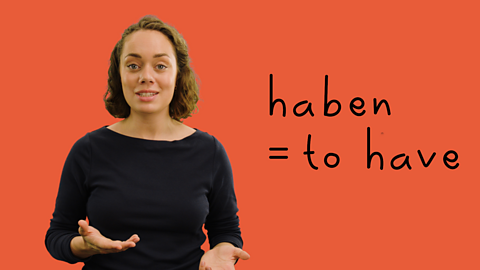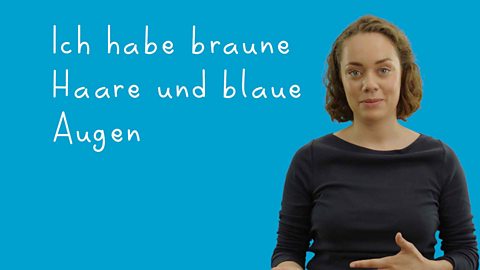Adjectives are words used to describe nouns. You can use adjectives to add more detail to what you want to say, like the colour or size of something or what someoneās personality is like.
Adjectives: how to describe people, places and things in German
So you want to describe things in German.
Letās start with a dog - ein Hund. And letās say the dog you are describing is the subject of the sentence - itās in the nominative case.
When you use an adjective after ein - because 'dog' is a masculine noun the adjective adds -er.
Ein brauner Hund - a brown dog.
For a feminine noun such as eine Katze - a cat - you add an -e to the end of the adjective: eine lustige Katze - a funny cat.
And for a neuter noun such as ein Kaninchen - a rabbit - you add -es: ein sĆ¼Ćes Kaninchen - a sweet rabbit.
So far so good. But if you want to use the definite article - der, die or das, followed by an adjective the endings are different.
In the nominative case you just add an -e to the end of the adjective:
der braune Hund
die lustige Katze
das sĆ¼Će Kaninchen.
But if the noun you are describing is the object of the sentence - itās in the accusative case - then the endings of the adjectives change again.
For a masculine noun the adjective adds an -n after both einen and den.
Ich sehe einen braunen Hund - I see a brown dog.
Ich sehe den braunen Hund - I see the brown dog.
And if the noun you are describing is feminine or neuter, the endings are the same in the nominative and accusative cases.
Ich sehe eine lustige Katze.
Ich sehe die lustige Katze.
Ich sehe ein sĆ¼Ćes Kaninchen.
Ich sehe das sĆ¼Će Kaninchen.
So watch out for the gender of nouns, and whether they are in the nominative or accusative case, and get describing.

Nouns are people, places and things. All German nouns start with a capital letter.
Take a look at the table below for some useful adjectives:
| German | English |
|---|---|
| lustig | funny |
| nett | nice |
| freundlich | friendly |
| sympathisch | kind |
| laut | loud |
| ruhig | quiet |
| faul | lazy |
| intelligent | intelligent |
| sportlich | sporty |
| kreativ | creative |
| streng | strict |
| “Ś±ō±š¾±Ć¾±²µ | hardworking |
You can put an adjective after a noun in a sentence using the verb sein (to be).
- Der Hund ist braun - The dog is brown.
- Die Frau ist intelligent - The woman is intelligent.
- Das MƤdchen ist sportlich - The girl is sporty.
Adjective endings
If you want to use an adjective before a noun, like the black cat, you need to add an ending to the adjective. The adjective ending depends on whether the noun you are describing is in the nominative or accusative case. You also have to pay attention to the gender, number and whether the article is definite (der, die, das) or indefinite (ein, eine, ein).
Nominative case
The nominative case is used when the noun is the subject of the sentence. This means the noun is doing the action (indicated by the verb) in the sentence.
Der Mann macht ein Sandwich - The man makes a sandwich.
Here, the man is performing the action. He is making the sandwich, so der Mann is the subject in this sentence and is in the nominative case.
Look at the tables below for adjective endings in the nominative case.
Definite article (der, die, das)
| Gender | Ending | Example |
|---|---|---|
| masculine (der) | -e | der alt_e_ Mann - the old man |
| feminine (die) | -e | die alt_e_ Frau - the old woman |
| neuter (das) | -e | das alt_e_ Haus - the old house |
| plural (die) | -en | die alt_en_ GebƤude - the old buildings |
Indefinite article (ein, eine, ein)
| Gender | Ending | Example |
|---|---|---|
| masculine (ein) | -er | ein alt_er_ Mann - an old man |
| feminine (eine) | -e | eine alt_e_ Frau - an old woman |
| neuter (ein) | -es | ein alt_es_ Haus - an old house |
Accusative case
The accusative case is used when the noun is the object of the sentence.
Der Mann macht ein Sandwich - The man makes a sandwich.
Here, the sandwich is having the action done to it. It is being made, so ein Sandwich is the direct object in the sentence and is in the accusative case.
Look at the tables below for adjective endings in the accusative case.
Definite article (den, die, das)
Watch out! The masculine der becomes den in the accusative case.
| Gender | Ending | Example |
|---|---|---|
| masculine (den) | -en | Ich sehe den braun_en_ Hund - I see the brown dog. |
| feminine (die) | -e | Ich sehe die braun_e_ Katze - I see the brown cat. |
| neuter (das) | -e | Ich sehe das braun_e_ Kaninchen - I see the brown rabbit. |
| plural (die) | -en | Ich sehe die braun_en_ Pferde - I see the brown horses. |
Indefinite article (einen, eine, ein)
Watch out! The masculine ein becomes einen in the accusative case.
| Gender | Ending | Example |
|---|---|---|
| masculine (einen) | -en | Ich sehe einen braun_en_ Hund - I see a brown dog. |
| feminine (eine) | -e | Ich sehe eine braun_e_ Katze - I see a brown cat. |
| neuter (ein) | -es | Ich sehe ein braun_es_ Kaninchen - I see a brown rabbit. |
Comparative adjectives
You can also use adjectives to compare two things. To do this, you need to use comparative adjectives. As is often the case in English, in German most adjectives just add -er on the end!
- Meine Mutter ist streng_er_ als mein Vater - My mother is stricter than my father.
- Mein Bruder ist lustig_er_ als meine Schwester - My brother is funnier than my sister.
There are some exceptions as some adjectives also add an umlaut when used in their comparative form.
- Mein Opa ist ²µ°łĆ¶Ć±š°ł als meine Oma - My grandad is taller than my granny.
- Mein Vater ist Ƥ±ō³Ł±š°ł als meine Mutter - My father is older than my mother.
Mein Opa ist ²µ°łĆ¶Ć±š°ł als meine Oma.
My grandad is taller than my granny.
Mein Vater ist Ƥ±ō³Ł±š°ł als meine Mutter.
My father is older than my mother.
Quiz
Find out how much you know aboutĀ adjectives in this short quiz!
Translate the sentences into German.
Where next?
Discover more from around Bitesize.
KS3 German
KS3 German
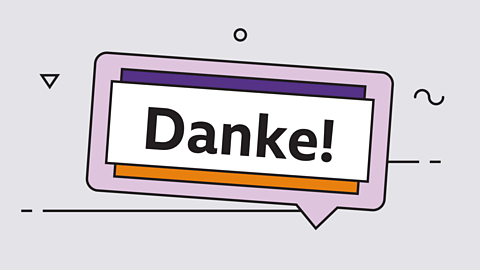
More on Grammar
Find out more by working through a topic
- count1 of 8
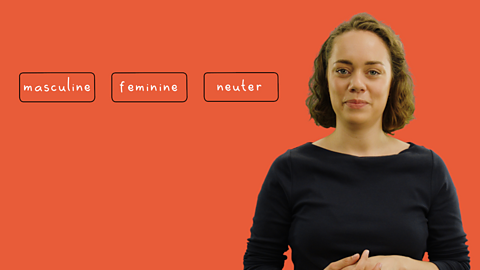
- count2 of 8
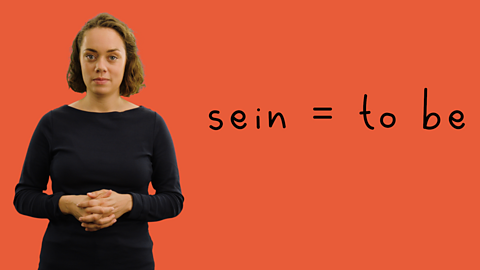
- count3 of 8
